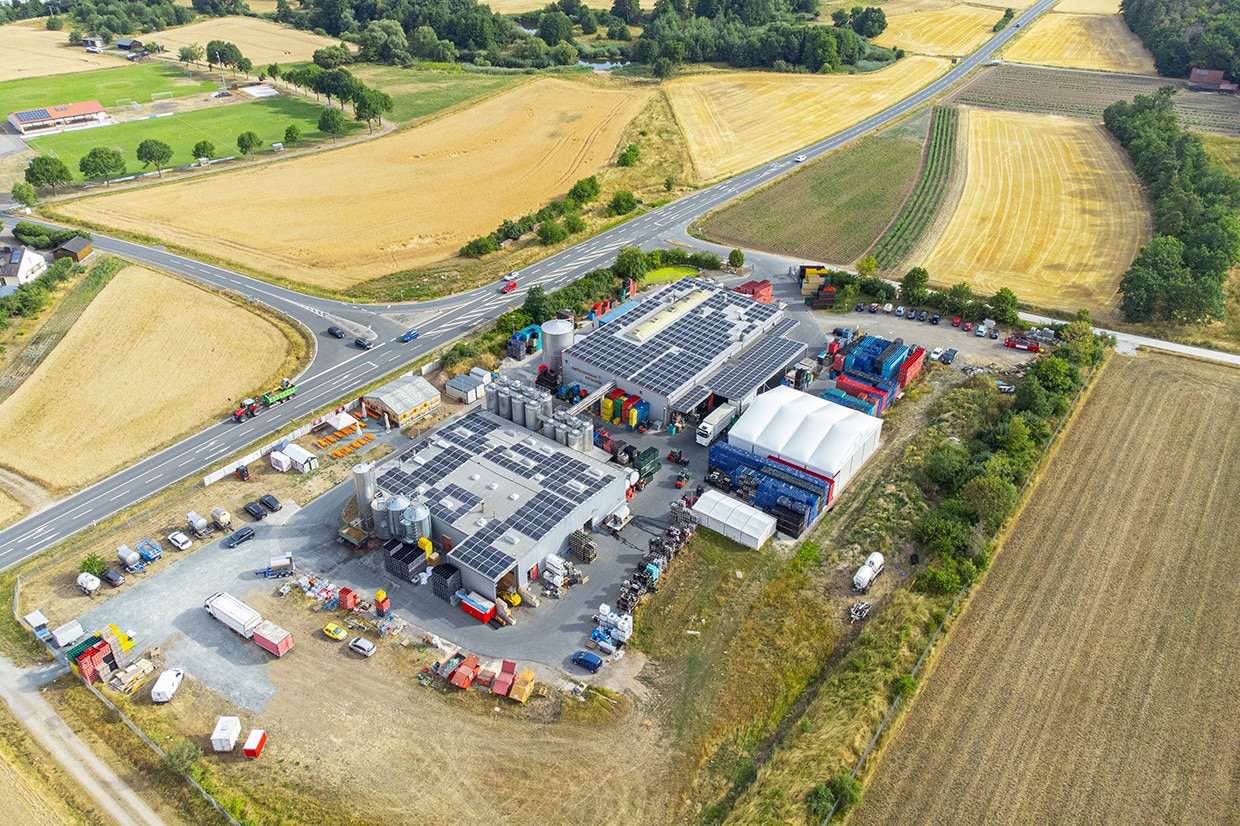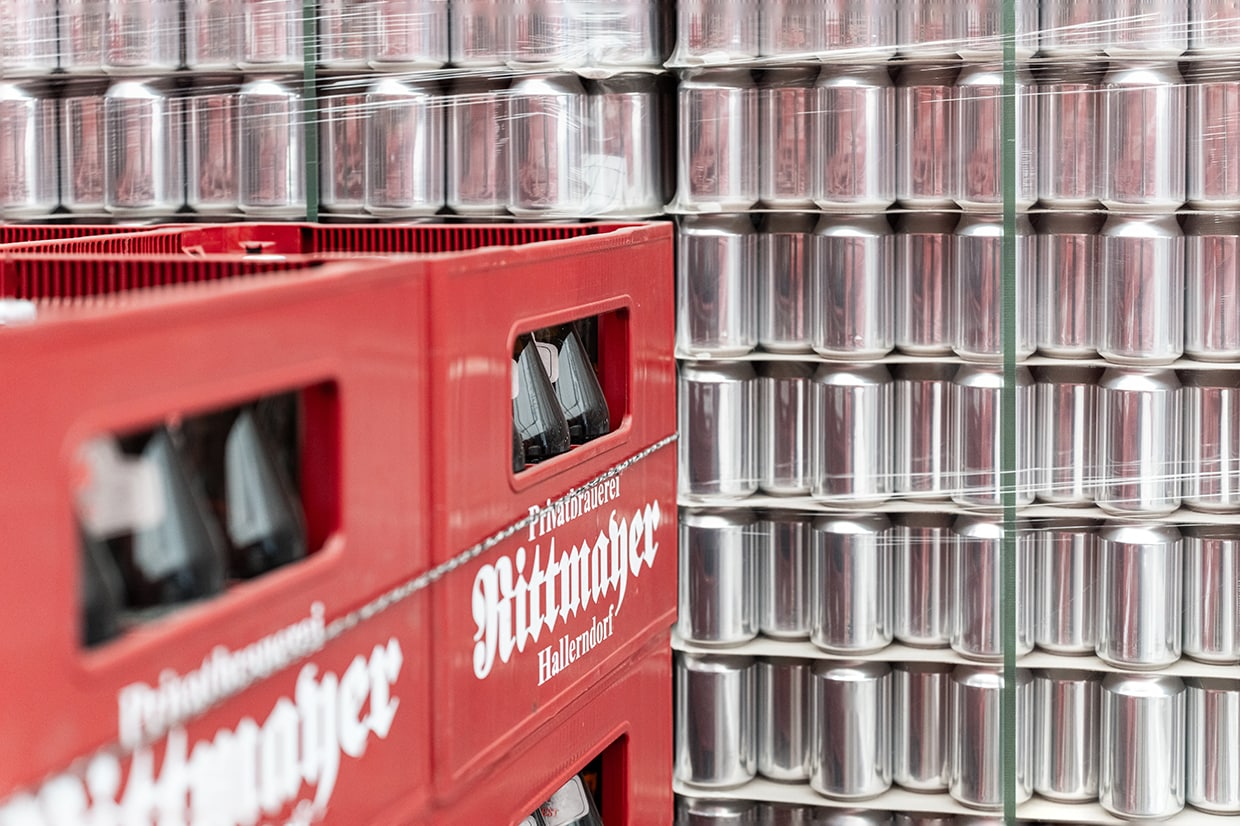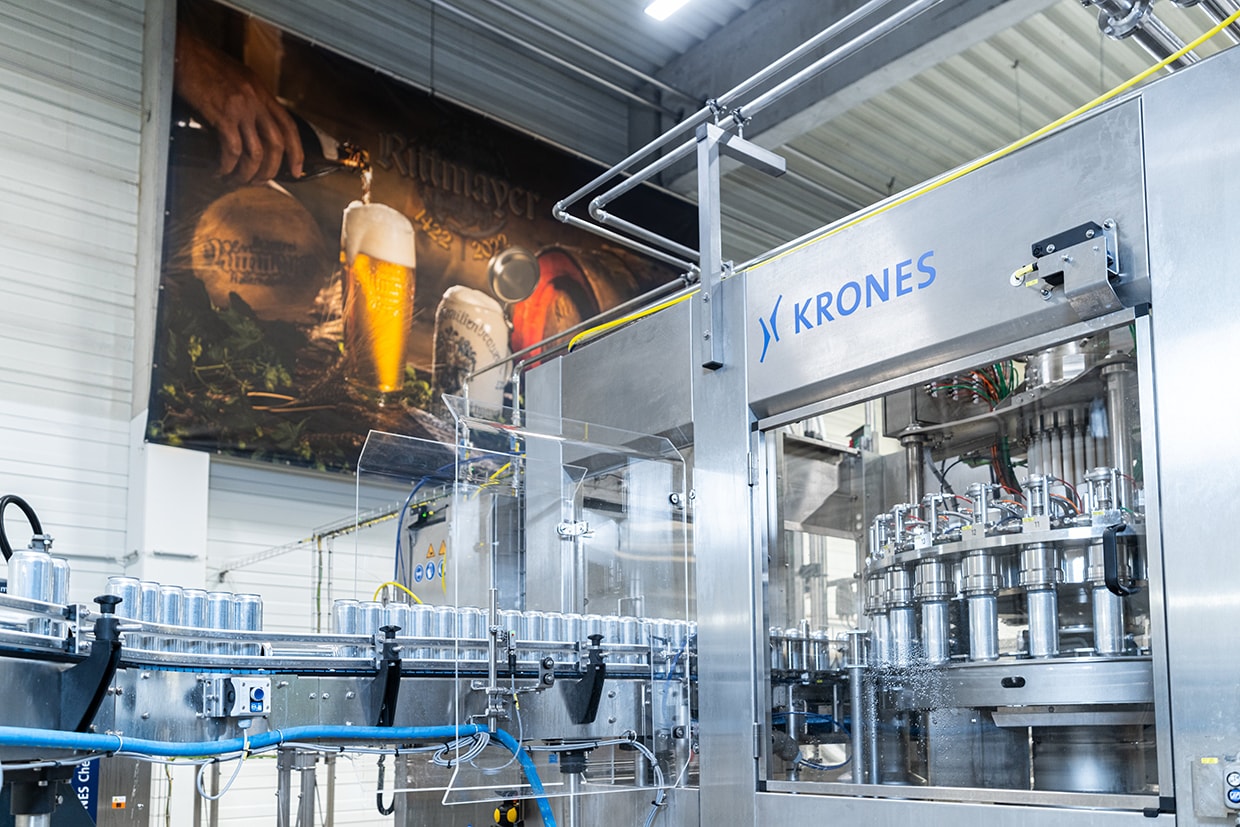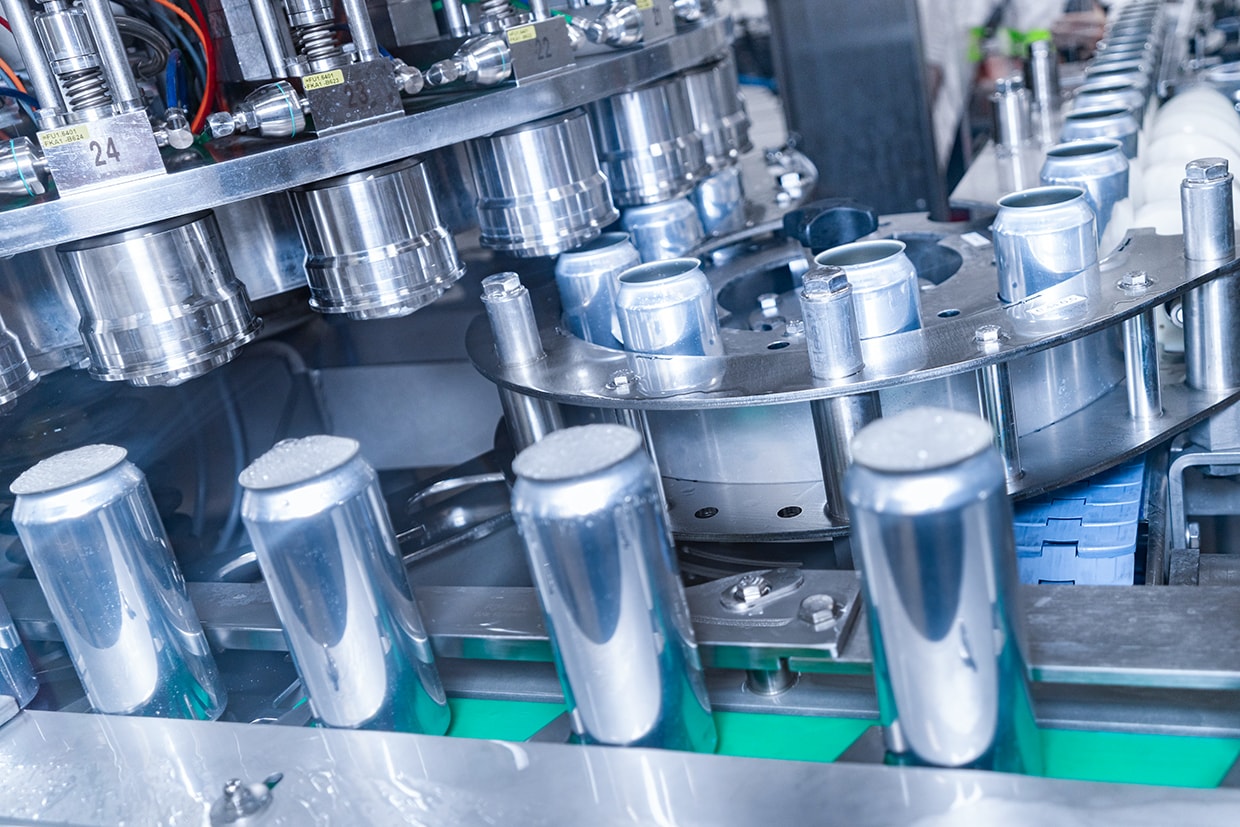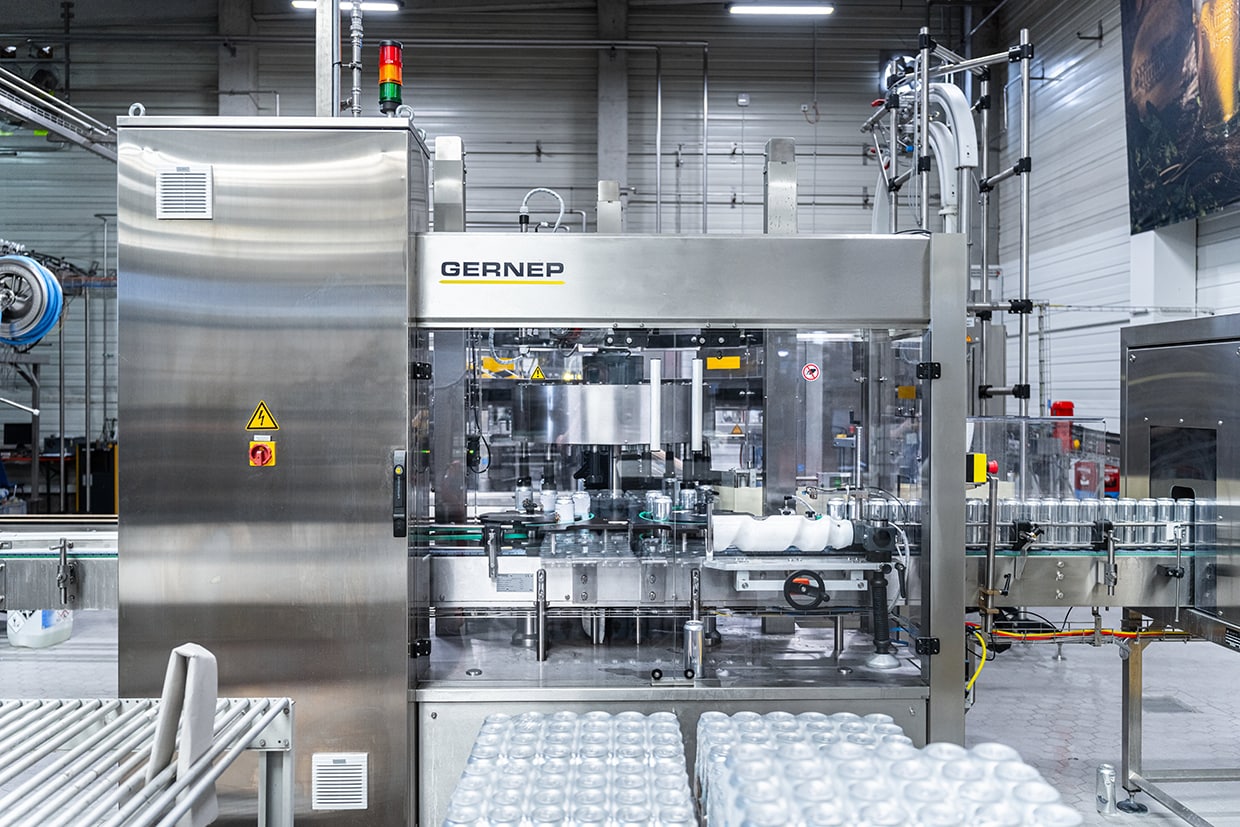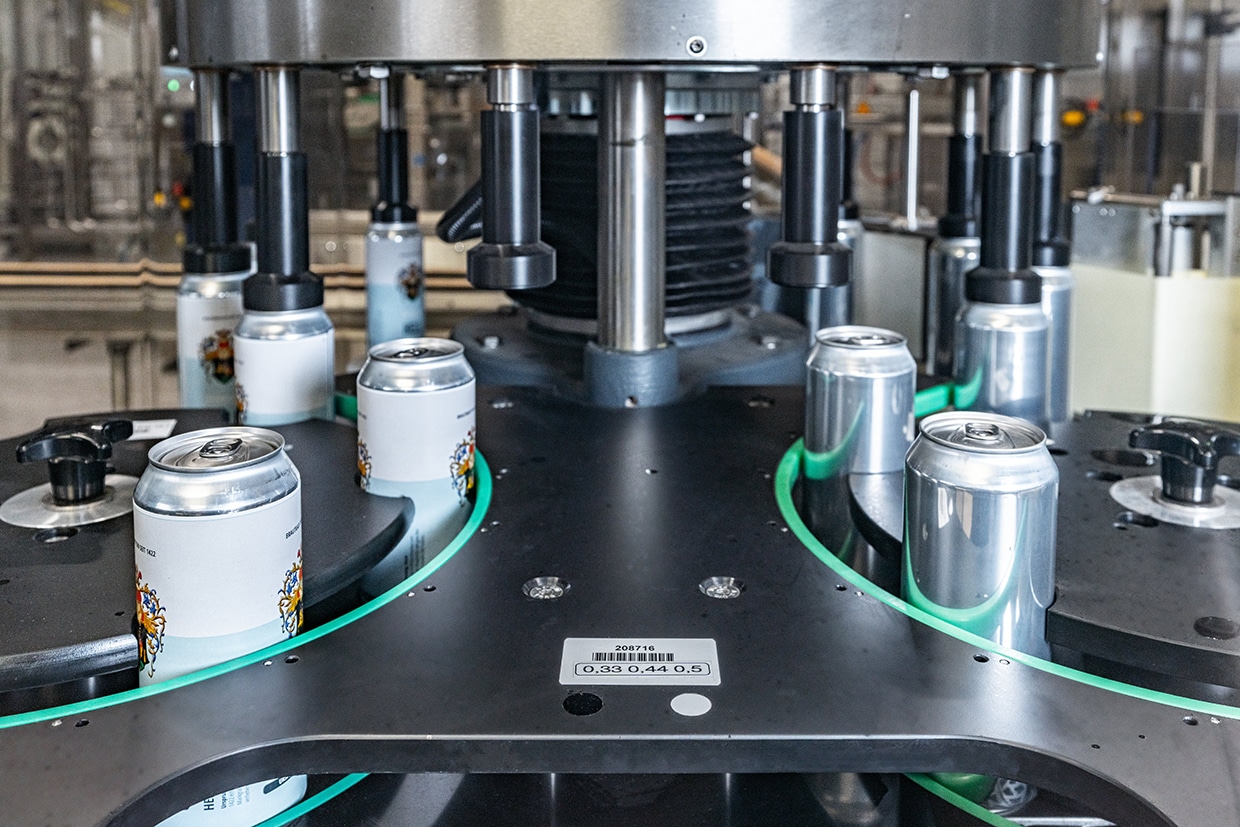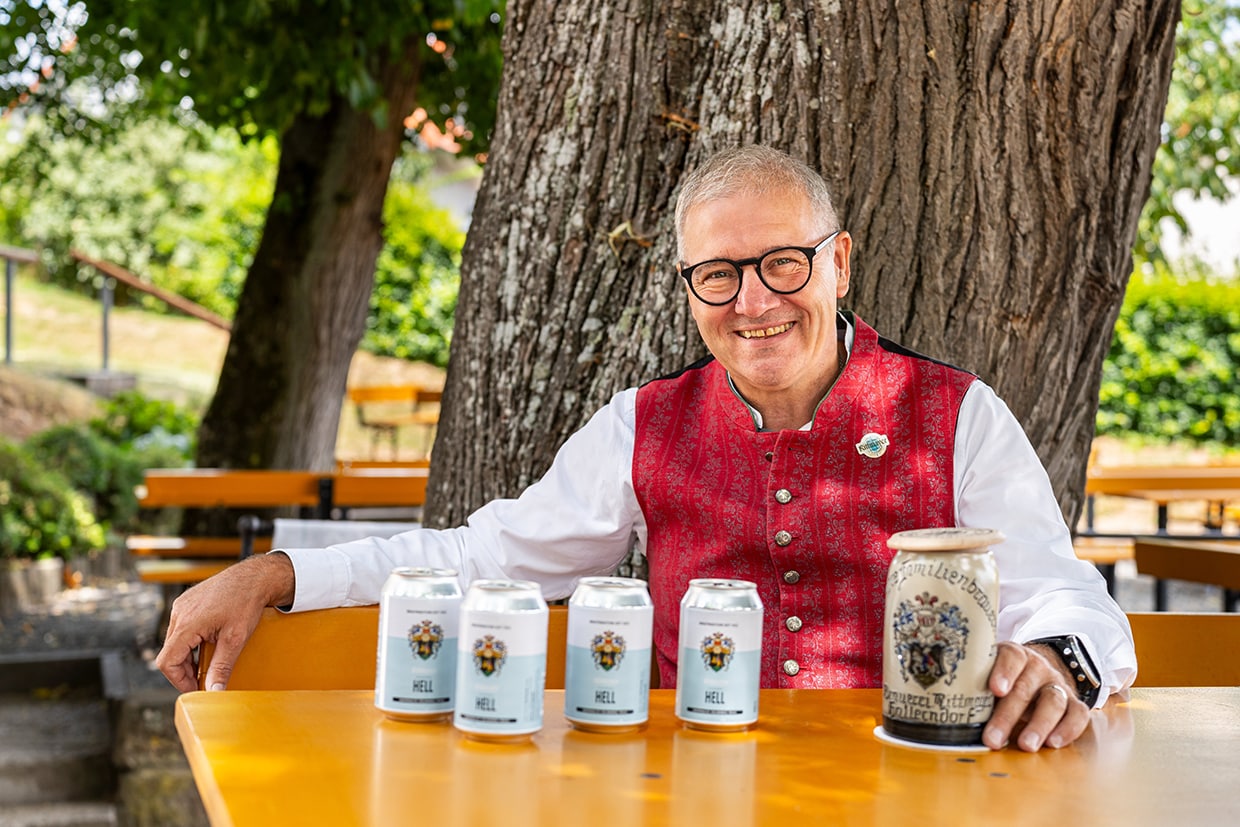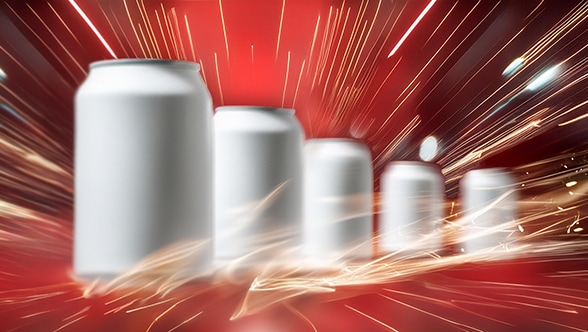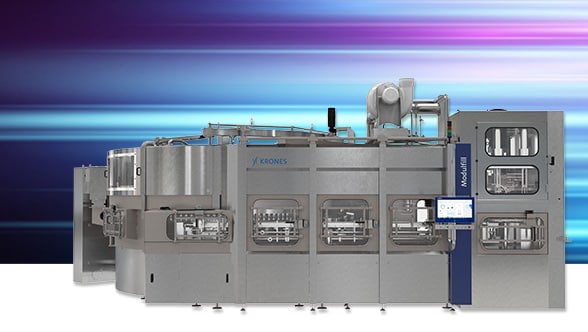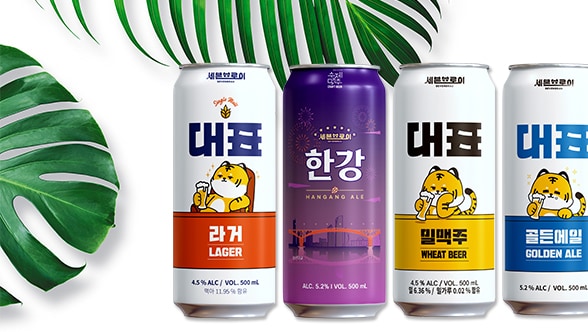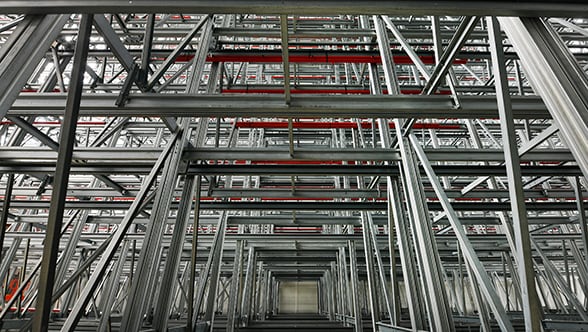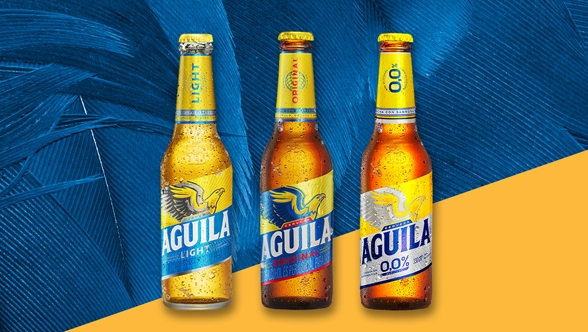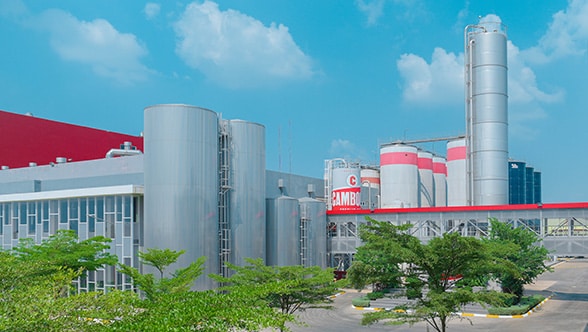Deep in Franconia’s beer country, a tradition-steeped brewery has recently added a canning line to its co-packing operations. Why, you might ask, would a brewery even consider putting its beer in cans, in this region of beer connoisseurs, where some 200 small and mid-sized breweries produce beers in the finest of craft traditions and then fill them into kegs or bottles? “Precisely because of the great diversity of beers that consumers are looking for across the region and around the world., we need a package that allows these small operations to export their product,” stresses Georg Rittmayer, head of the Rittmayer Hallerndorf brewery and filling center. He firmly believes that, “For sales outside our region, the can is the best packaging.” The current trend supports his view. Even in Germany, where consumers must pay a deposit on beverage cans, the can is making a comeback. And in the rest of the world, it’s already widely used.
Glass for local sales, cans for the wider market
Here we are in Hallerndorf, in the Upper Franconia region of northern Bavaria: It’s home to about 4,000 residents, seven breweries and countless beer cellars, all of which can be reached on an easy day hike over gently rolling hills. In the midst of all that stands the 600-year-old Brauerei Rittmayer, one of the oldest family-run breweries in Germany. The company brews roughly 30,000 hectoliters of artisanal beer annually and also serves as one of the region’s biggest contract fillers. Its state-of-the-art filling center processes up to 100,000 hectoliters and nine different bottles for some 30 local breweries, most of which qualify as microbreweries. Some larger breweries outsource the handling of specialty products like swing-stopper bottles to Rittmayer or turn to them to manage bottlenecks in their own operations.
